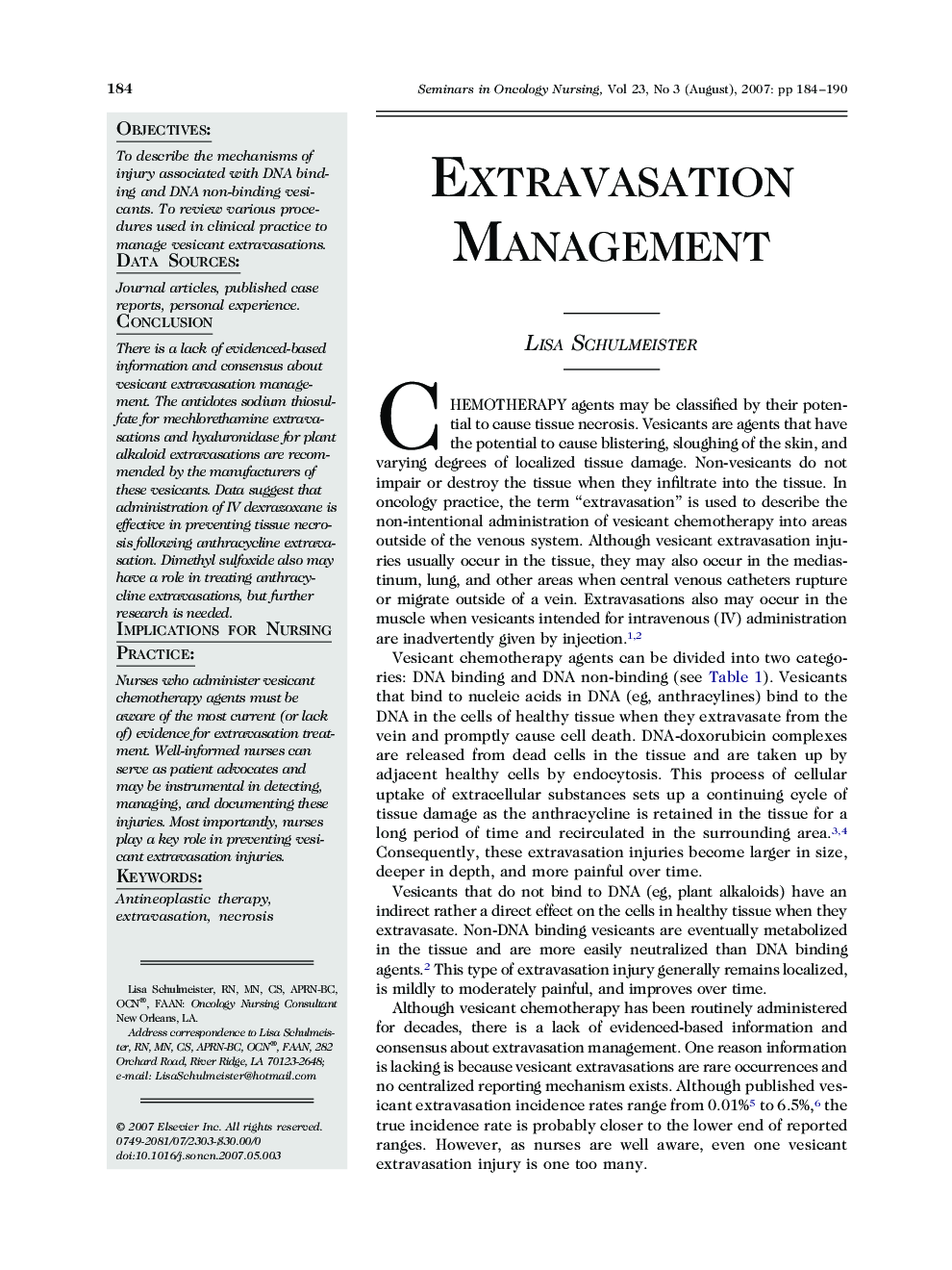| Article ID | Journal | Published Year | Pages | File Type |
|---|---|---|---|---|
| 2679688 | Seminars in Oncology Nursing | 2007 | 7 Pages |
ObjectivesTo describe the mechanisms of injury associated with DNA binding and DNA non-binding vesicants. To review various procedures used in clinical practice to manage vesicant extravasations.Data SourcesJournal articles, published case reports, personal experience.ConclusionThere is a lack of evidenced-based information and consensus about vesicant extravasation management. The antidotes sodium thiosulfate for mechlorethamine extravasations and hyaluronidase for plant alkaloid extravasations are recommended by the manufacturers of these vesicants. Data suggest that administration of IV dexrazoxane is effective in preventing tissue necrosis following anthracycline extravasation. Dimethyl sulfoxide also may have a role in treating anthracycline extravasations, but further research is needed.Implications for Nursing PracticeNurses who administer vesicant chemotherapy agents must be aware of the most current (or lack of) evidence for extravasation treatment. Well-informed nurses can serve as patient advocates and may be instrumental in detecting, managing, and documenting these injuries. Most importantly, nurses play a key role in preventing vesicant extravasation injuries.
